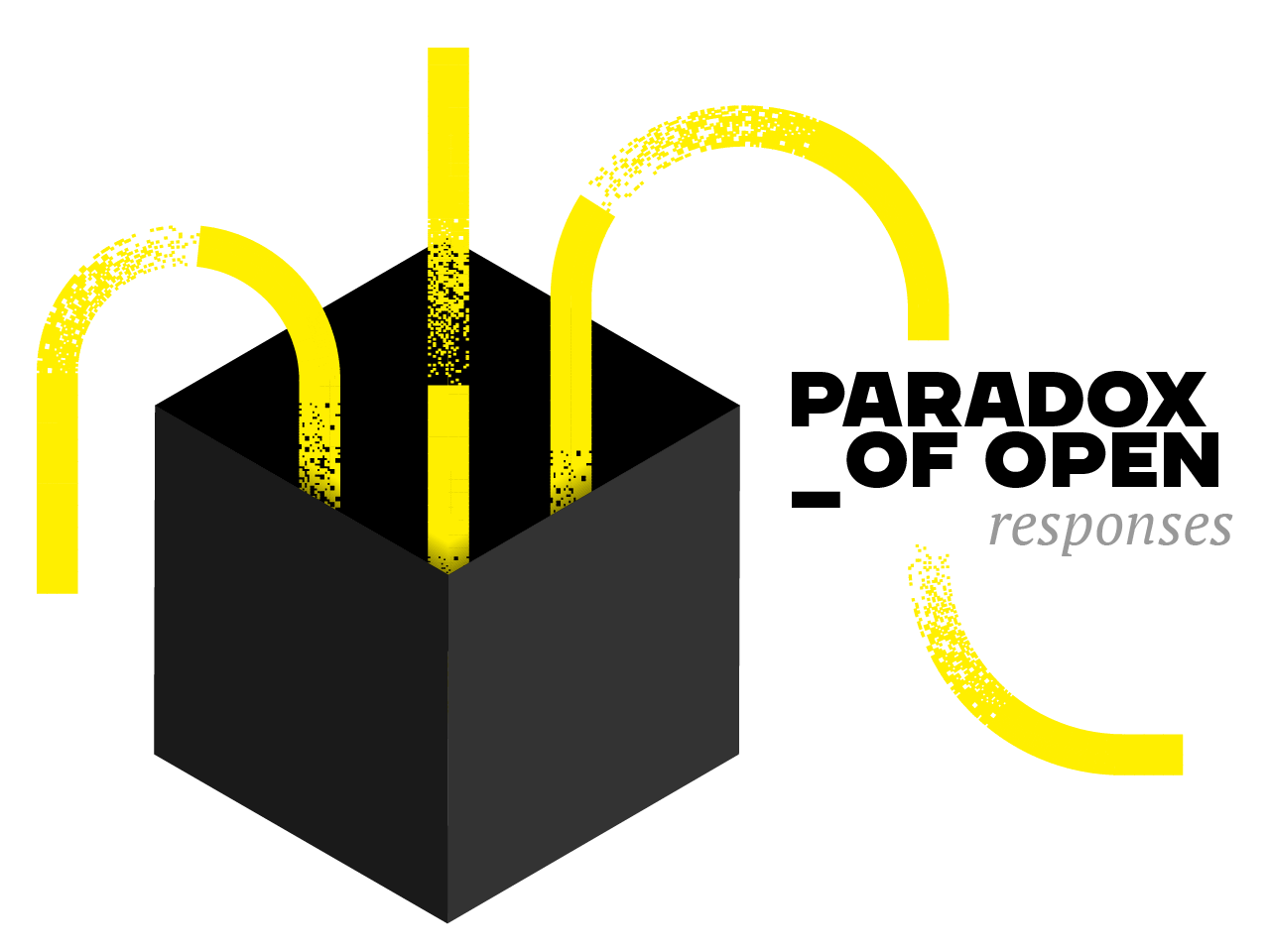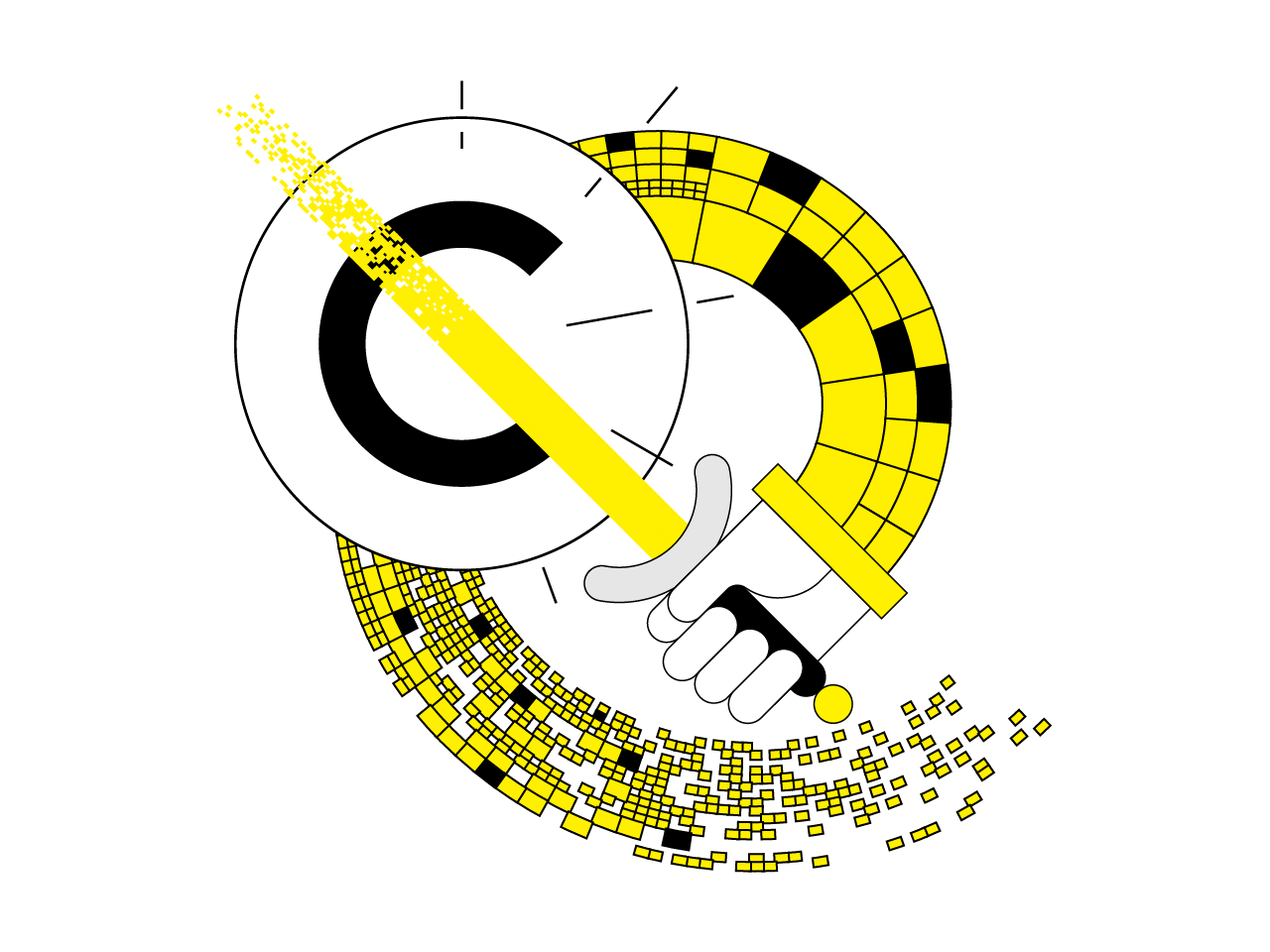The Paradox of Open is a thoughtful reflection on the “open movement,” what it was and what it might be in order to support universal access to knowledge and new forms of information production and sharing. One of its key themes can be summed up by the old saying “don’t fight the last war.” That is, for many years, the open movement has concerned itself with how incumbent media companies use the law to gain special privileges for themselves, constraining both creators and users of information technology and protecting their businesses against competition from current or future alternatives. Paradox rightly notes that, today, that focus is too limited, inasmuch as it does not account for the rise of large tech platforms and their power over the information ecosystem, among other concerns. Advocating for openness must account for how circumstances have changed, choosing new strategies and tactics.
That’s certainly true, but in this brief response I will highlight why it would also be a mistake to set aside entirely the animating concerns of the “last war,” as it has evolved rather than ever truly ending. The same types of threats from incumbent media companies are just as present today, albeit in new forms. Addressing this challenge can be done consistently with Paradox’s call to take a more “systemic perspective” and not one that is “outdated” or merely “antagonistic” towards particular companies or industries. An updated strategy can also align well with Paradox’s encouragement to build new “digital public spaces.”
Paradox asserts that “Today, the copyright wars are almost over” but large rights holders don’t appear to see it that way. After all, transpositions of the recent European Union Copyright Directive continue and we should expect more rounds of litigation over its scope, particularly given variations in implementation; new proposals to provide “ancillary copyright” for news publishers and impose filtering mandates continue to progress around the world; and large incumbents continue to use existing copyright laws to challenge new means of sharing and finding information, including suing nonprofits like the Internet Archive and the DNS resolver Quad9.
News publishers have also turned to other policy levers to accomplish aims similar to ancillary copyright. For instance, Australia’s News Media Bargaining Code pursued similar ends to ancillary copyright – remuneration for links to news articles and for the use of short quotations, which would otherwise not be prohibited by copyright. It also includes other privileges for publishers with respect to entities designated under the code, such as special rights of notice for algorithm changes that could affect links to their news content. While no entities have been officially designated under the code, it has been used as a cudgel with Google and Facebook (the principal targets of the bill’s proponents) and it has inspired related approaches in the United States, Canada, the UK, and elsewhere. Canada’s draft legislation explicitly acknowledges that it is intended as an end-run around copyright’s exceptions and limitations: “For greater certainty, limitations and exceptions to copyright under the Copyright Act do not limit the scope of the bargaining process.”
Privileges for publishers have also recently been proposed in the context of media safety regulations. In the midst of consideration of the Digital Services Act (DSA), news publishers sought provisions to exempt news content from removal – in effect, a form of must-carry provision. While this was not adopted, we should expect publishers to seek to shape regulatory oversight and a code of practice developed under the DSA. Meanwhile, in the UK, recent versions of its Online Safety bill impose special duties on platforms with respect to news publishers, journalists and their content and gives regulators broad authority to second guess and penalize platforms’ decisions. This is not limited to removal decisions, but also ranking and other forms of moderation that impact or restrict visibility.
These are just a few examples, and there will be plenty of other legislative and regulatory opportunities in the future where media companies will seek out special assurances that platforms carry, promote, and pay them favorably, backed by the threat of government enforcement. For instance, the EU Commission has proposed a new Media Freedom Act that would give traditional broadcasters and publishers special rights to carriage and prominence on large platforms. Meanwhile, Canada’s proposed Online Streaming Act is set to regulate the prominence and discoverability of domestic media on online platforms. Whatever setbacks incumbent media companies have had so far in their policy advocacy, the trendline points solidly in their direction.
This trend should raise alarms for those who came to the openness movement fearful of how powerful incumbents may use the law to protect themselves against competition and undermine others’ speech, creativity, and innovation.
Evidence from countries with ancillary copyright for news publishers reflects that it not only impedes readers’ access to diverse media sources and fails to deliver benefits to publishers but also particularly harms smaller publishers. While Australia’s News Media Bargaining Code quickly yielded payouts from Google and Facebook to News Corp and other prominent publishers, it’s been, at best, a mixed bag for smaller publishers and the long tail, and the benefit to readers remains unclear. In the context of the UK’s safety regulations, leading policymakers responsible for the proposal bragged that the rules protect publishers by preventing “woke” tech companies from taking action to limit the visibility of harmful or low-quality information as defined by a platform’s content policies. Government interference in a private party’s editorial discretion isn’t something we should treat lightly, and this is especially true when expressly presented to discriminate among competing viewpoints. Even if motivated by benign intent, we should be concerned not only with the impact on platforms’ ability to address harmful content but also the fact that these privileges will accrue principally to those with the resources to engage with the regulator – large established publishers, rather than small or new voices.
Does the persistence of this threat to “open” mean that we should ignore the power of tech platforms or other concerns? Of course not, and Paradox is right to call out that it would be a mistake to reflexively rely on “the enemy of my enemy is my friend” to guide approaches to policy advocacy.
After all, while large tech platforms may prefer to block the above types of proposals altogether, their second best option – cutting special deals with certain publishers to get in the government’s good graces – is not a good result for society either from the perspective of media independence, pluralism, and competition. Over time, it would also be unsurprising for affected incumbent platforms to advocate actively for regulation to ensure a “level playing field” by imposing similar burdens on competitors and startups.
It would also be a mistake, as Paradox suggests, to revert to “outdated” views that present merely “antagonistic views” and lack an affirmative policy agenda. Public interest advocates in the “copyright wars” historically battled Hollywood and the record industry’s hyperbolic claims that the Internet and digital technology were imminently going to lead to the collapse of the creative industries and even creativity itself. Along with defending against harmful policy proposals by reference to the impact on user rights, free expression, innovation or other interests, advocates offered an affirmative vision of how business models could successfully adapt – and adapt they did. Major news publishers’ claims equating linking to theft and search engines to “vampires” are similarly ill-founded, and the industry’s challenges can be better traced to the fact that there is far more competition today for the attention of readers and the dollars of advertisers; however, with those market dynamics in mind, there remains much less reason to be sanguine today about the financial prospects for quality journalism that serves communities’ needs. Business models in the news industry continue to adapt to the Internet. Still, given the societal value of journalism to society and democracy (beyond the value to an individual consumer and their willingness to pay), we shouldn’t expect the market alone to produce optimal outcomes, and the consequences of failing to intervene are more significant.
There are plenty of affirmative alternatives to address that challenge without the downsides of the proposals described above. For instance, in a critique of large news publishers’ pursuit of expanded copyright or special bargaining codes, Cory Doctorow argues instead for policies to restructure the advertising market as a whole, including the practices of Google and Facebook. Expanded public funding could more directly improve civic media.
Paradox’s recommendation to build alternative “digital public spaces” provides a complementary direction. Just as we shouldn’t expect a bookstore to do a library’s job, we shouldn’t expect commercial platforms and publishers to meet all of society’s needs for a healthy information ecosystem, no matter how well incentivized and regulated. In particular, Paradox looks towards building alternative services that are user- and community-driven, rather than governed by the logic of the market or provisioned by the state alone. Such services could provide a part of a new technology “stack” for public service media, as Sanjay Jolly and Ellen Goodman put it. In his explanation of the related concept of “digital public infrastructure,” Ethan Zuckerman draws inspiration from the tradition of public service media like the British Broadcasting Company and how they reshaped the “relationship between governments, media producers, and citizens and influenced policies around the world.” He highlights Wikipedia and Mozilla’s Firefox as examples of existing digital public infrastructures that have had a significant impact, as well as other examples that have more direct relevance to the challenges of community media. For instance, he notes the work of a coalition of broadcasters and cultural institutions in the Netherlands called PublicSpaces to use new open tools to facilitate community dialogue and engagement.
Reinventing public service media is one application of the idea of digital public spaces; there are and can be many more.
As Zuckerman puts it, “At this moment in the evolution of the Web, we are comfortable having wide-ranging arguments about the shortcomings and failings of existing digital platforms. We are nowhere near as good at proposing and exploring alternatives, and this failure of imagination means that we are ceding the future of the Internet to the companies that have already taken power.” In fact, we need a richer imagination not only to avoid ceding power to tech companies but also to the media companies that have been a central focus of the open movement.
Derek Slater is a tech policy strategist focused on media, communications, and information policy. He currently serves as a Founding Partner at Proteus Strategies.
Previously, he helped build Google’s public policy team from 2007-2022, serving as the Global Director of Information Policy during the last three years. He led a global team of subject matter experts on access to information, content regulation, and online safety, and testified before legislators in the US, UK, and elsewhere around the globe.
Along with deep strategy and subject matter expertise, Derek is a skilled campaigner and coalition builder. For instance, he worked with start-ups, venture capitalists, and civil society to organize campaigns around online copyright in the US and Europe, including the successful defeat of the overreaching Stop Online Piracy Act (SOPA) in 2012. Similarly, as Head of Policy Strategy & Campaigns for Google Fiber, he mobilized organizations at national and local levels to pass broadband legislation in Nashville and San Francisco, which later became the basis for federal action. For this and other work, the Coalition for Local Internet Choice gave him its Private Sector Champion award in 2016.
Before his time at Google, Derek was the Activism Coordinator for the Electronic Frontier Foundation and the first student fellow at Harvard’s Berkman Center for Internet and Society. He holds a bachelor’s degree in government from Harvard College.

We asked leaders and experts from the broad open movement what the Paradox of Open means to them and how to address the challenges that it poses. This essay is one of the responses.





